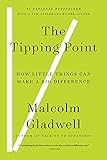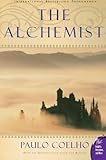Iacocca: A frank autobiography
Iacocca: An Autobiography

Author: Lee Iacocca
Year: 1986
Publisher: Bantam
ISBN: 0553251473
I recently finished reading //Iacocca: An Autobiography// — I had earlier heard about the book (and Iacocca for that matter) when [[http://nakulmandan.blogspot.com|Nakul]] had read it back at IITK. But even then I didn’t really know who Iacocca was. Infact, I didn’t even know the book had to do with the automobile industry!
I really enjoyed reading the book though. Iacocca doesn’t use fancy words, but he’s straight forward and earnest. And he manages to be funny and satirical in some places.
For those who don’t know about Iacocca, here’s an extremely brief history: he worked at Ford for almost 30 years, the last 8 of which he was President of Ford. Then one fine day, Henry Ford Jr. fired Iacocca. Soon after, Iacocca joined Chrysler, the third of the big 3 auto makers in the US (the other company being GM, which Iacocca often likens to a country unto itself). At that time, Chrysler wasn’t really doing so well. In the years that followed, the country witnessed one of the greatest economic dramas in history as Chrysler struggled to get back on its feet. This book is Iacocca’s story as he moves from Ford to Chryslter, his triumphs and tribulations as he leads a sick company from pits to profit.
For me the book was interesting in multiple dimensions. First of all, I didn’t really know much about the Chrysler saga until I read the book, so it was just good from a general knowledge perspective. Secondly, there’s something humbling in the way Iacocca tells his story. I mean here’s this guy who was basically the top man at two of the biggest auto makers in the US for long periods of time. He was even rumored to be contesting for Presidency at one point! But the way he talks about his experiences and his pain and his struggles and his anger (he makes no effort to hide the fact that he hated Henry Ford Jr. for what he did for him), it comes across as a very honest and down-to-earth effort and I really appreciate that.
Of course there are always two sides to a story, and perhaps there’s Henry Ford’s side to this story as well. But I think the book remains a good read nonetheless.


